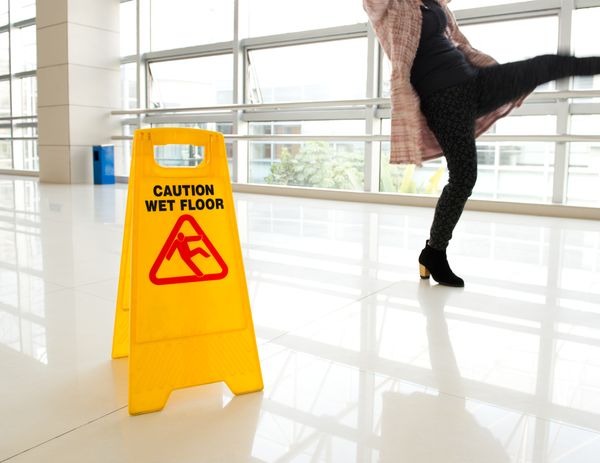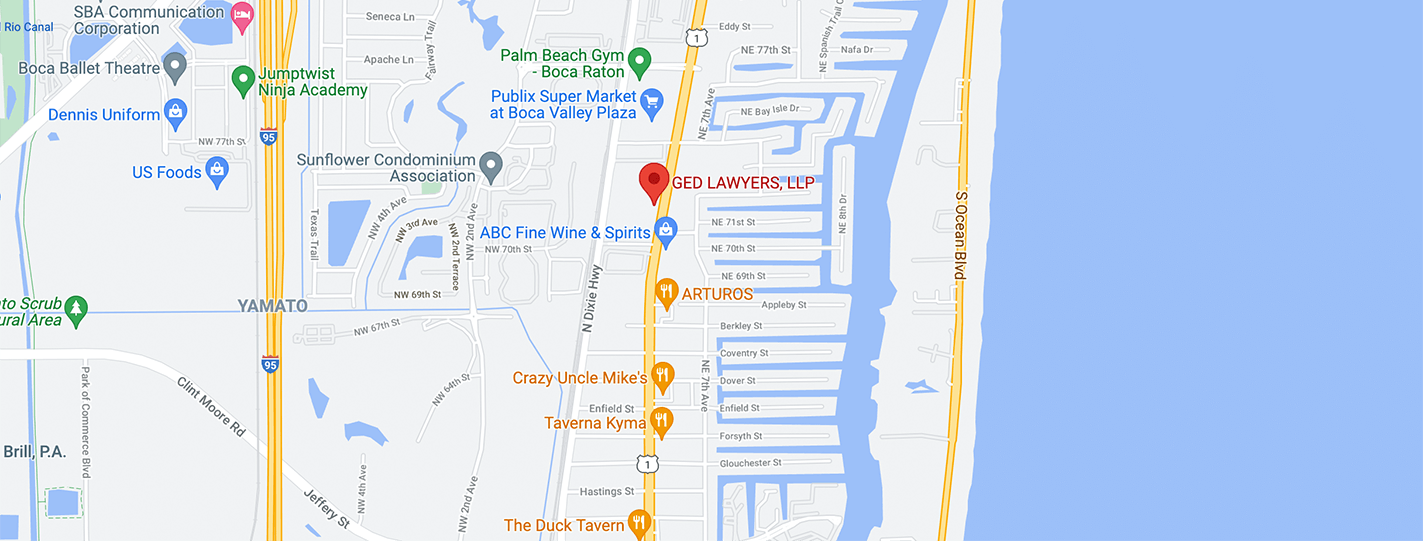
Slipping and falling down is a fact of life. The wisdom goes that it matters what you do once you get back up. However, what should you do if that stumble leads to severe injuries? And how do you know who is responsible for your fall?
Slip and fall accidents can end up causing serious harm, pain, and medical bills. In some cases, you may need to miss work or seek physical therapy and rehab. Fortunately, if you slip and fall on someone else’s property in Florida, you can seek reimbursement for your injuries by suing the responsible property owner.
Introduction to Slip and Fall Liability

Because Florida property owners are responsible for maintaining reasonably safe premises, they can be liable if your fall was caused by the owner’s negligence. Florida’s slip and fall statutes are also known as “premise liability laws,” as property owners have a duty to keep their premises free from obvious or known hazards. If you can prove that your fall was partially caused by a property owner breaching their duty, the owner may owe you reimbursement for your injuries.
Typically, property owners direct you to their insurance company to cover your losses. However, insurance companies are notorious for attempting to pay less than what you’re truly owed. You should seek a Florida slip and fall injury lawyer to ensure those responsible for your injuries pay what you are due.
we are here for our clients and their legal needs, with proficiency in a broad range of fields. GET A FREE CONSULTATION
Proving Premises Liability in Florida
To recover damages after a slip and fall, you need to prove that your tumble was caused by the property owner’s negligence. The owner isn’t liable for any accident that occurs on their property, only those they should have been able to prevent. There are two main theories in Florida for how to prove a slip and fall case against a property owner responsible for your injuries.
Owner Knew or Should Have Known About the Condition
The first theory of premise liability, or slip and fall negligence, requires you to show that the property owner should have been aware of the danger that led to your fall. Once they’re aware or should have known about the condition, the owner has a duty to correct the hazard and ensure the safety of their premises.
Often, a slip and fall occurs on a commercial property with multiple employees, such as a grocery store or restaurant. If you can prove that an employee should have been aware of a condition that presented a danger, you can hold the employer liable for your fall.
In a restaurant, water or other drinks can spill onto common-area floors. A customer walking over this wet spot is in danger of a fall, which is why you often see “Caution Wet Floor” signs. However, if you slip and fall on a wet spot in a restaurant, whether the business is responsible under premises liability laws depends on the facts of the fall.
To be liable, an employee would need to have known the wet spot on their floor was dangerous. The danger of a wet floor is obvious, but other conditions that could cause a tumble may not be so clear. Once it’s established that an employee could reasonably understand the danger, their actions determine negligence.
If a property owner or employee didn’t have sufficient time to correct or repair the hazard before a fall, it would be tough to hold them responsible. The negligence stems from their response. In the wet floor example, if the spill occurred mere seconds before you slipped, the business is likely not negligent. They didn’t have an opportunity to correct the condition. However, if the spill was on the floor for minutes or another customer alerted an employee of the wet floor and that person ignored the information, then the business can be held responsible if its employees didn’t take steps to avoid danger.
Owner Caused the Condition and Failed to Correct
The second theory of premises liability deals with the property owner or their representative’s actions directly. If the owner or their employees were responsible for creating the condition themselves and didn’t take steps to correct the danger, they could be held liable for their negligence.
Returning to the example of a restaurant’s wet floor, consider if it was an employee of the restaurant themselves who spilled water during regular business hours. In this situation, the employee created the danger and is clearly aware of the hazard it presents to customers and other employees. Therefore, the employee needs to remedy the condition as soon as they can. This would mean placing the “Caution Wet Floor” sign over the spill immediately while mopping up.
Damages Available in Premise Liability Cases
If you’re hurt in a slip and fall in Florida, proving the property owner is liable is the first step in recovering what you’re owed. Next, you need to determine what injuries you’ve suffered to calculate damages.
A typical Florida slip and fall settlement can include:
- Reimbursement for medical expenses, such as hospital bills, ambulance costs, physical therapy, and rehabilitation programs
- Economic damages, such as lost wages and lost employment opportunities
- Noneconomic damages, such as pain and suffering, mental anguish, and inconvenience
What damages are available to you depend on your case’s facts, but a personal injury lawyer can help you secure the maximum amount you’re owed.
with compassionate advice and professional assistance. CALL US TODAY
Pure Comparative Negligence
Under Florida law, your compensation can be reduced if you were partially at fault for the accident. For example, if you’re found to be 25% responsible for your fall while the property owner is 75% at fault, your total damages will be reduced by 25%. This system of allotting fault is called pure comparative negligence.
Personal injury law, premises liability, and comparative negligence are complicated legal concepts and you don’t want to try to navigate them on your own. An experienced slip and fall attorney can determine the extent of your damages, negotiate with insurance companies, and identify the parties at fault for your injuries. At Ged Lawyers, our Florida slip and fall attorneys can help you receive compensation for injuries caused by a property owner’s negligence. To meet with a team member, contact our office at 844-443-3529 or online to schedule a free consultation to review your case.
